Abstract
Aeromonas spp. show patterns of hemagglutination with human group O cells in the presence of fucose, galactose, and mannose. These patterns are related to biotype as well as to the source of isolates. There was good correlation between hemagglutination pattern and the presence of diarrhea among strains isolated in Western Australia, which was the only source with adequate data for classification of children with an without diarrhea. Most of the environmental and other nonfecal isolates produced patterns different from those in strains associated with diarrhea. These results suggest that hemagglutinins should be considered with enterotoxins as virulence factors in Aeromonas spp.
Full text
PDF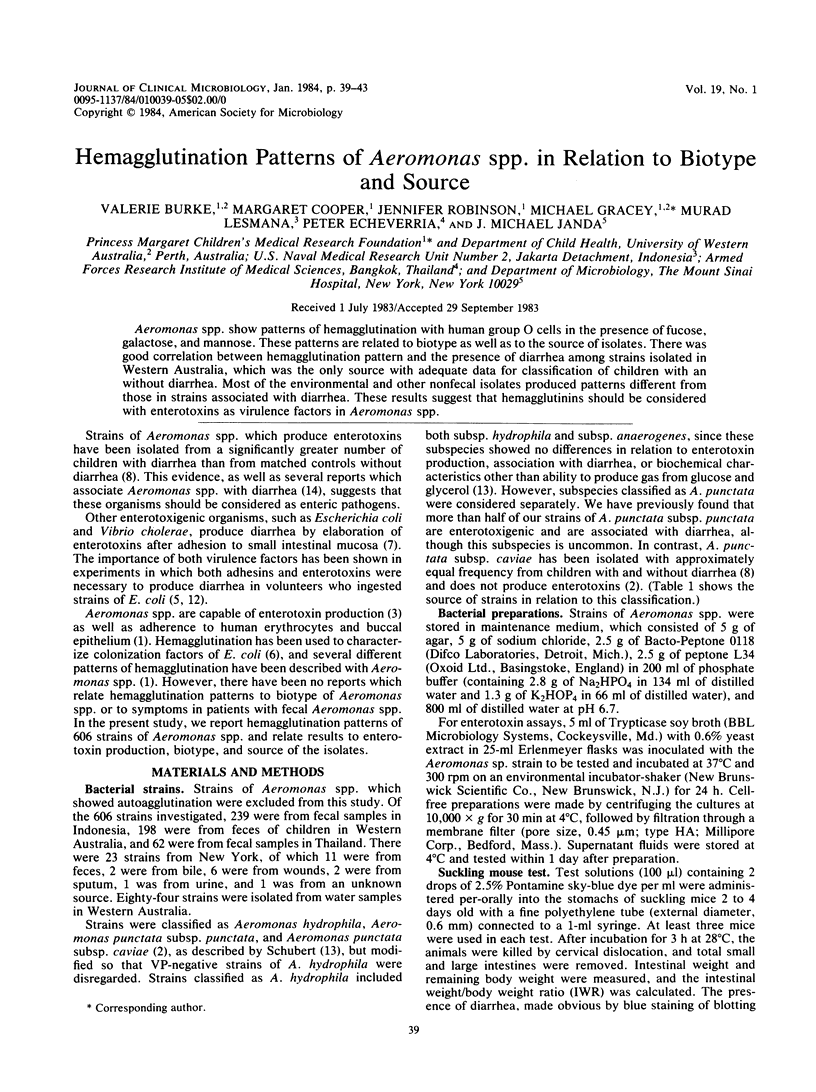
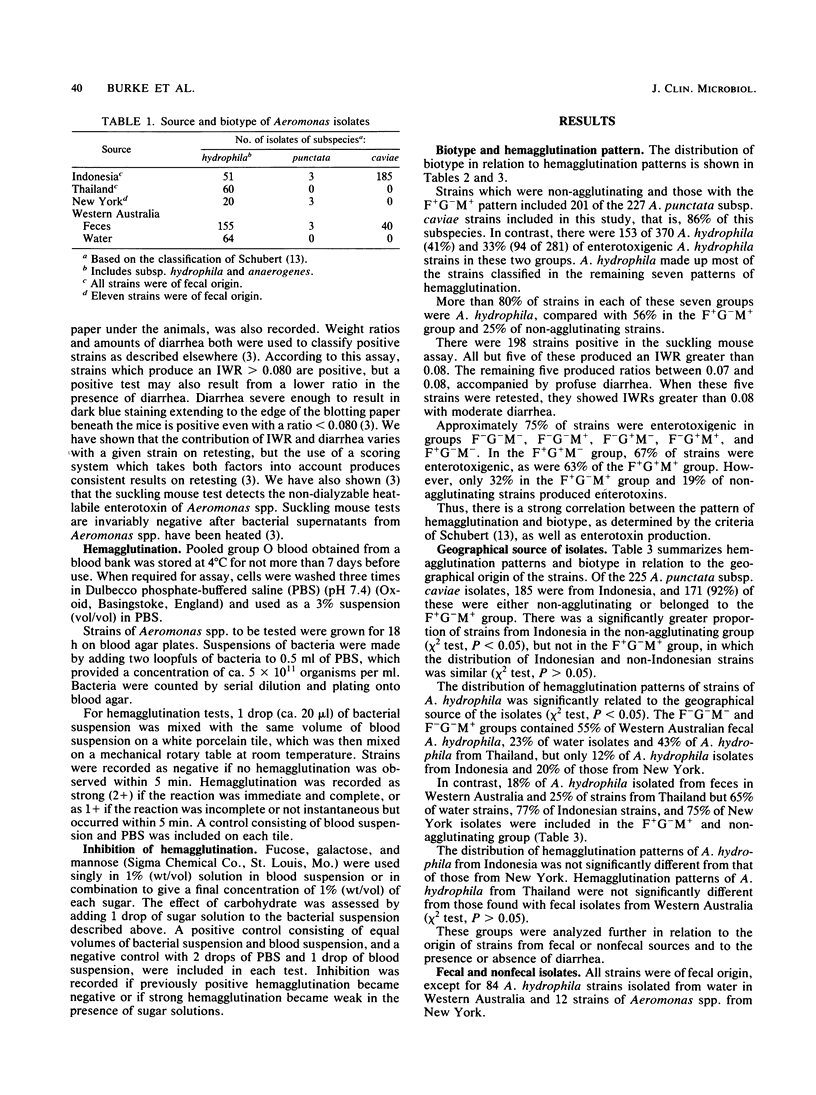
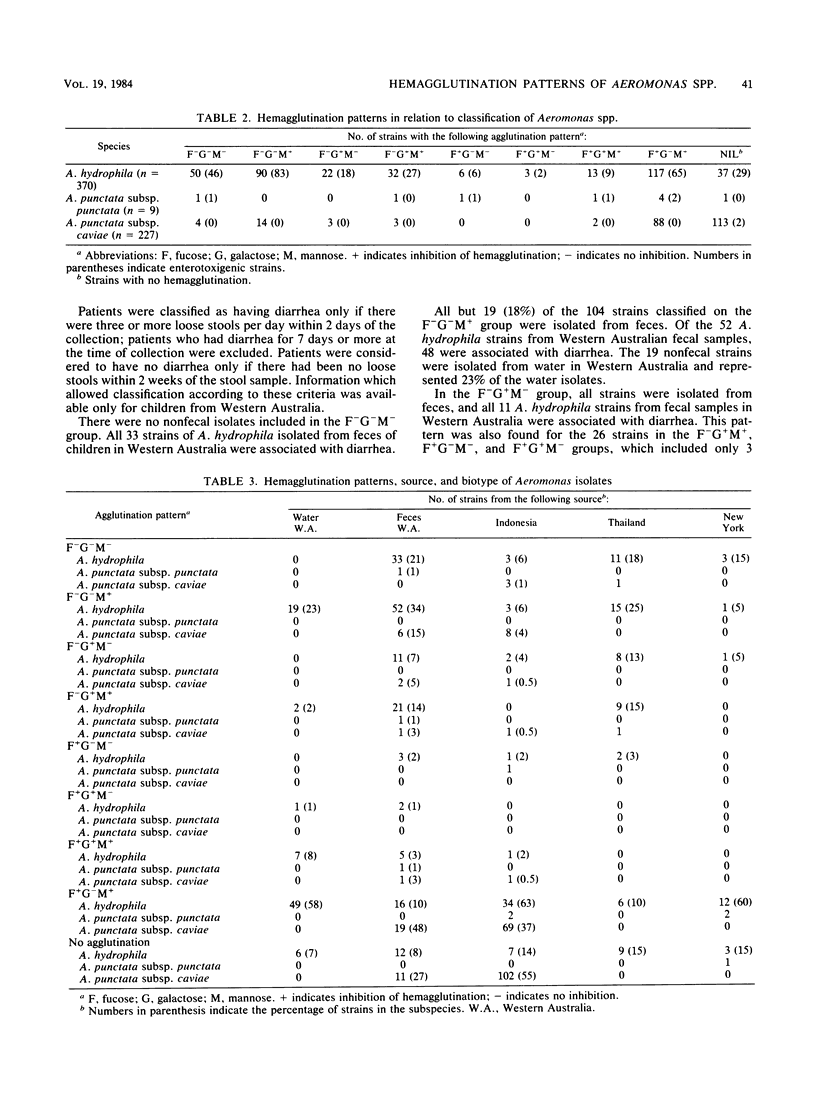
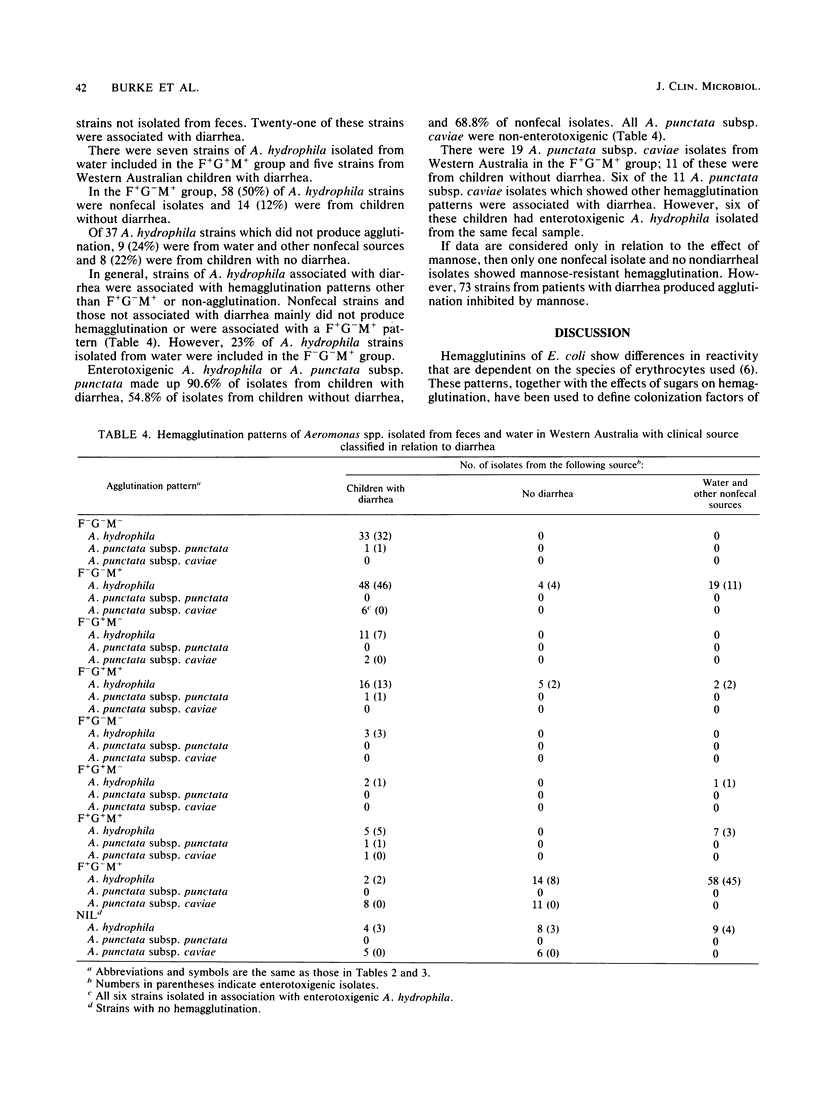
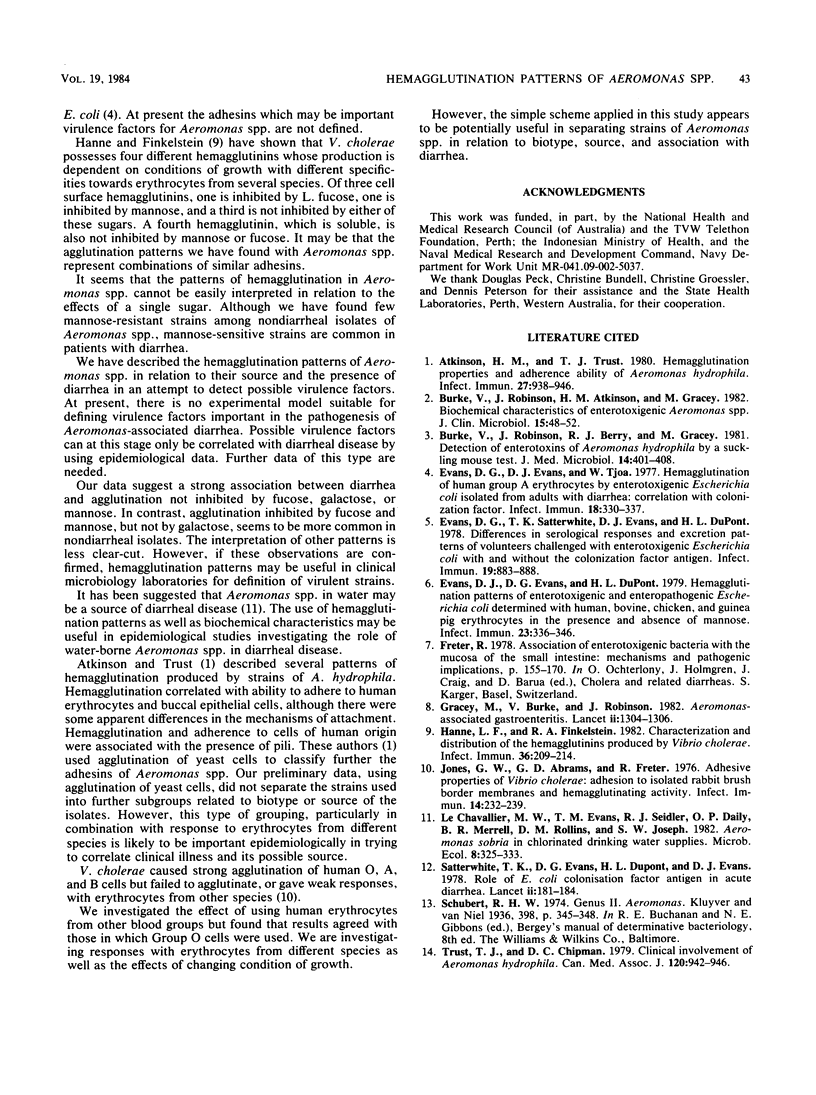
Selected References
These references are in PubMed. This may not be the complete list of references from this article.
- Atkinson H. M., Trust T. J. Hemagglutination properties and adherence ability of Aeromonas hydrophila. Infect Immun. 1980 Mar;27(3):938–946. doi: 10.1128/iai.27.3.938-946.1980. [DOI] [PMC free article] [PubMed] [Google Scholar]
- Burke V., Robinson J., Atkinson H. M., Gracey M. Biochemical characteristics of enterotoxigenic Aeromonas spp. J Clin Microbiol. 1982 Jan;15(1):48–52. doi: 10.1128/jcm.15.1.48-52.1982. [DOI] [PMC free article] [PubMed] [Google Scholar]
- Burke V., Robinson J., Berry R. J., Gracey M. Detection of enterotoxins of Aeromonas hydrophila by a suckling-mouse test. J Med Microbiol. 1981 Nov;14(4):401–408. doi: 10.1099/00222615-14-4-401. [DOI] [PubMed] [Google Scholar]
- Evans D. G., Evans D. J., Jr, Tjoa W. Hemagglutination of human group A erythrocytes by enterotoxigenic Escherichia coli isolated from adults with diarrhea: correlation with colonization factor. Infect Immun. 1977 Nov;18(2):330–337. doi: 10.1128/iai.18.2.330-337.1977. [DOI] [PMC free article] [PubMed] [Google Scholar]
- Evans D. G., Satterwhite T. K., Evans D. J., Jr, DuPont H. L. Differences in serological responses and excretion patterns of volunteers challenged with enterotoxigenic Escherichia coli with and without the colonization factor antigen. Infect Immun. 1978 Mar;19(3):883–888. doi: 10.1128/iai.19.3.883-888.1978. [DOI] [PMC free article] [PubMed] [Google Scholar]
- Evans D. J., Jr, Evans D. G., DuPont H. L. Hemagglutination patterns of enterotoxigenic and enteropathogenic Escherichia coli determined with human, bovine, chicken, and guinea pig erythrocytes in the presence and absence of mannose. Infect Immun. 1979 Feb;23(2):336–346. doi: 10.1128/iai.23.2.336-346.1979. [DOI] [PMC free article] [PubMed] [Google Scholar]
- Gracey M., Burke V., Robinson J. Aeromonas-associated gastroenteritis. Lancet. 1982 Dec 11;2(8311):1304–1306. doi: 10.1016/s0140-6736(82)91510-0. [DOI] [PubMed] [Google Scholar]
- Hanne L. F., Finkelstein R. A. Characterization and distribution of the hemagglutinins produced by Vibrio cholerae. Infect Immun. 1982 Apr;36(1):209–214. doi: 10.1128/iai.36.1.209-214.1982. [DOI] [PMC free article] [PubMed] [Google Scholar]
- Jones G. W., Abrams G. D., Freter R. Adhesive properties of Vibrio cholerae: adhesion to isolated rabbit brush border membranes and hemagglutinating activity. Infect Immun. 1976 Jul;14(1):232–239. doi: 10.1128/iai.14.1.232-239.1976. [DOI] [PMC free article] [PubMed] [Google Scholar]
- Satterwhite T. K., Evans D. G., DuPont H. L., Evans D. J., Jr Role of Escherichia coli colonisation factor antigen in acute diarrhoea. Lancet. 1978 Jul 22;2(8082):181–184. doi: 10.1016/s0140-6736(78)91921-9. [DOI] [PubMed] [Google Scholar]
- Trust T. J., Chipman D. C. Clinical involvement of Aeromonas hydrophila. Can Med Assoc J. 1979 Apr 21;120(8):942–946. [PMC free article] [PubMed] [Google Scholar]


